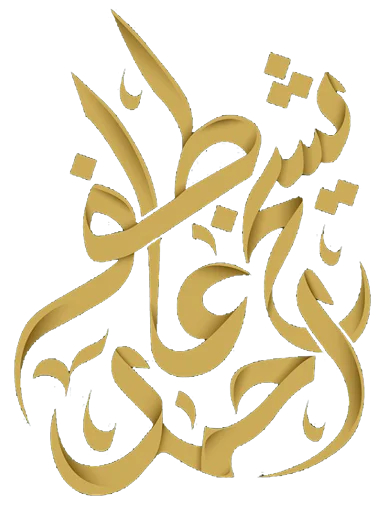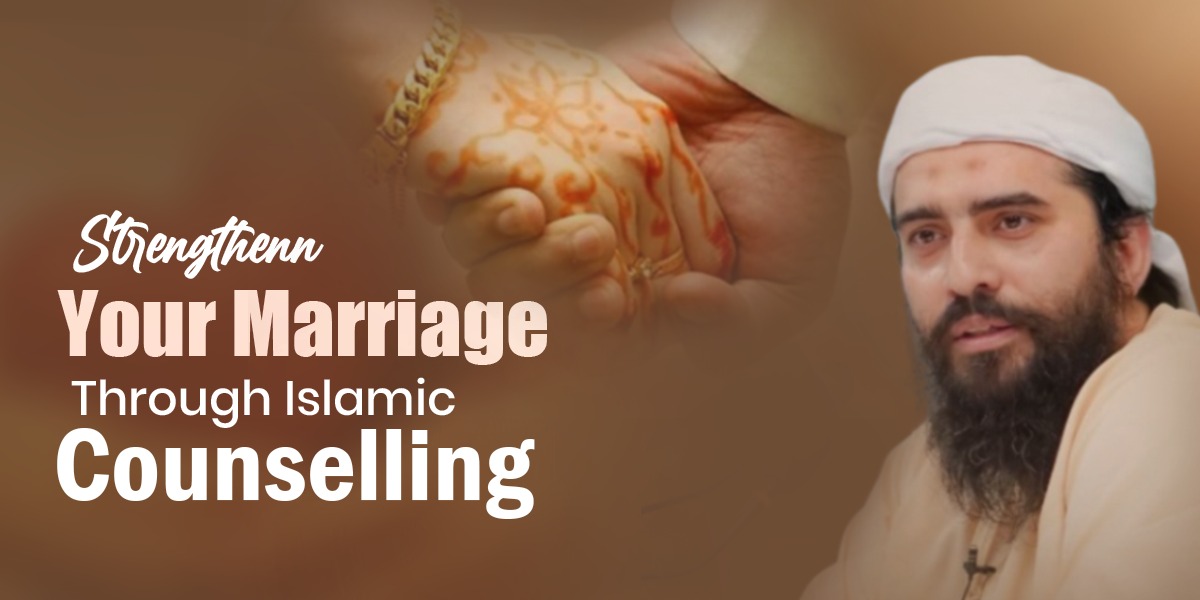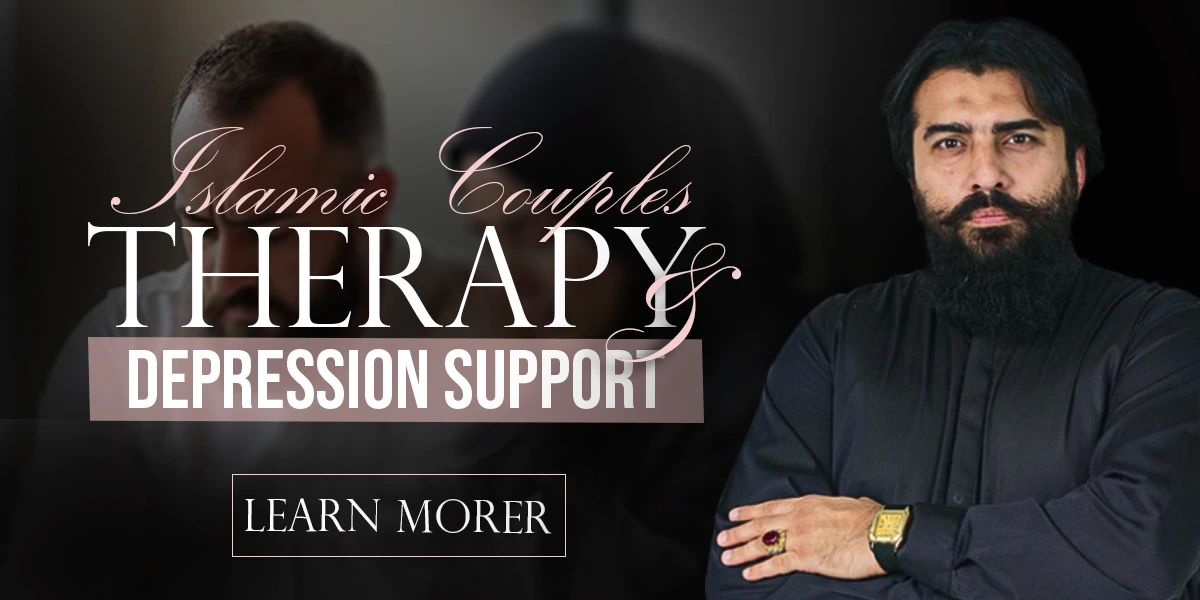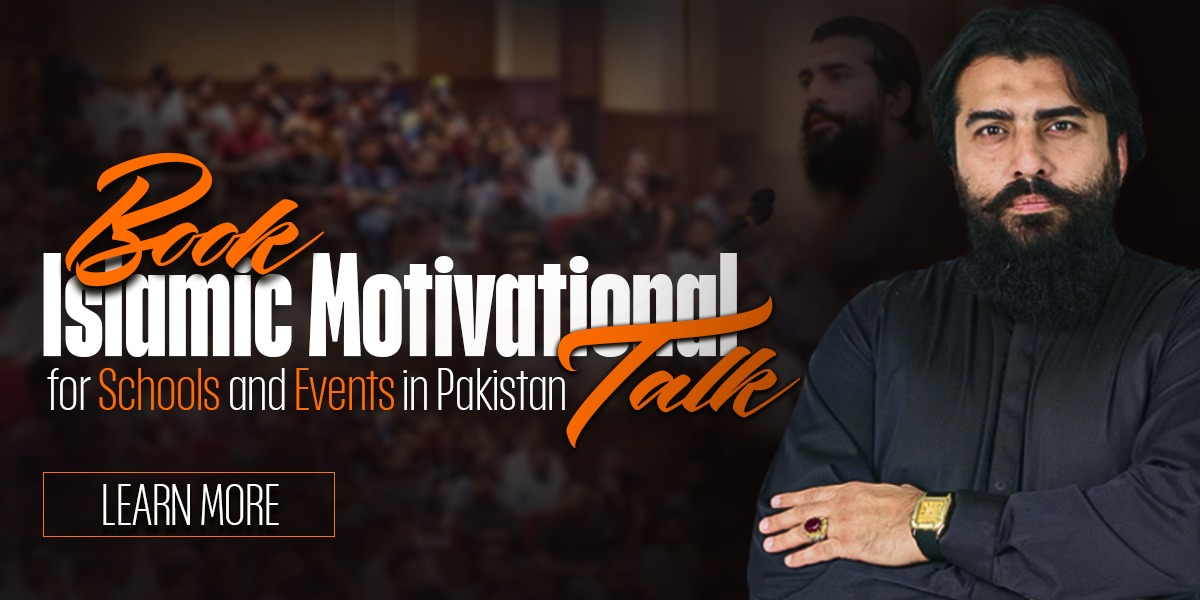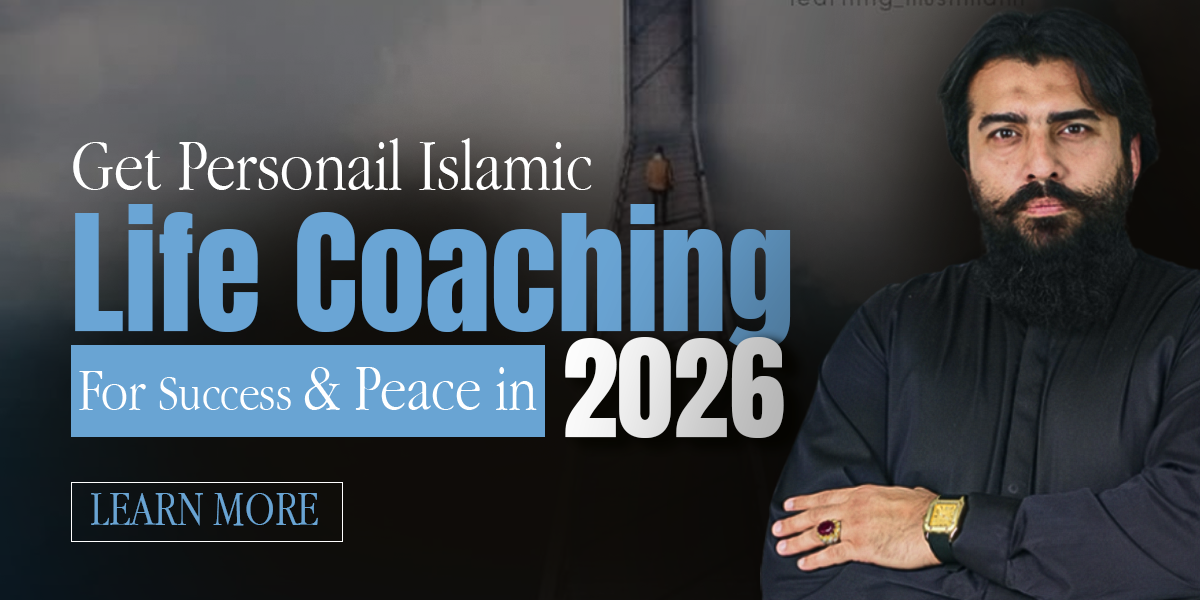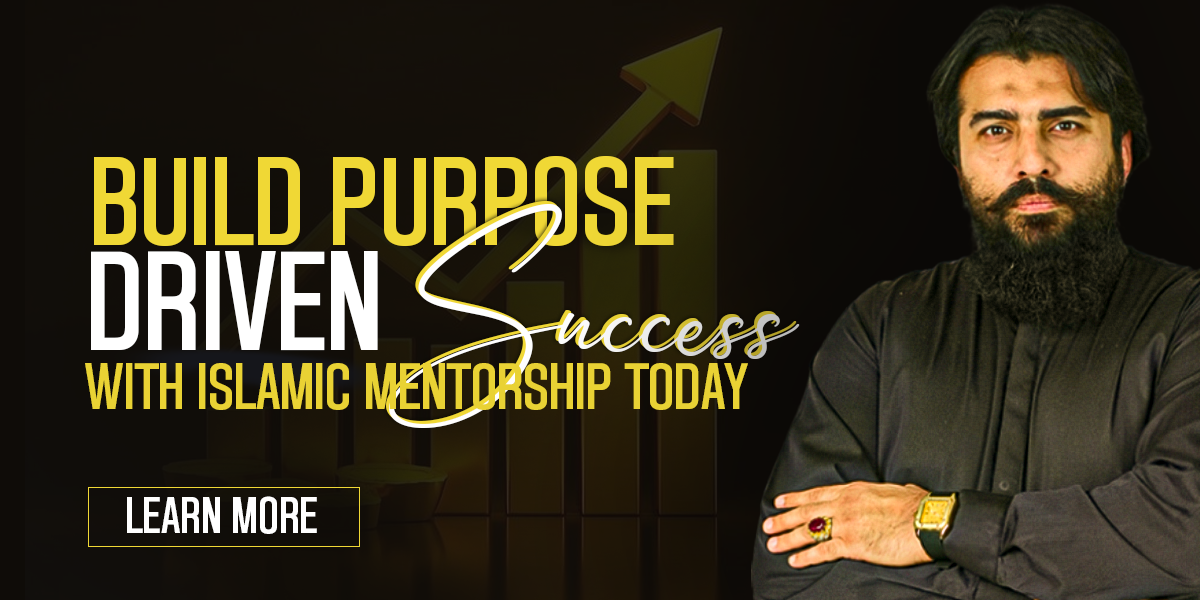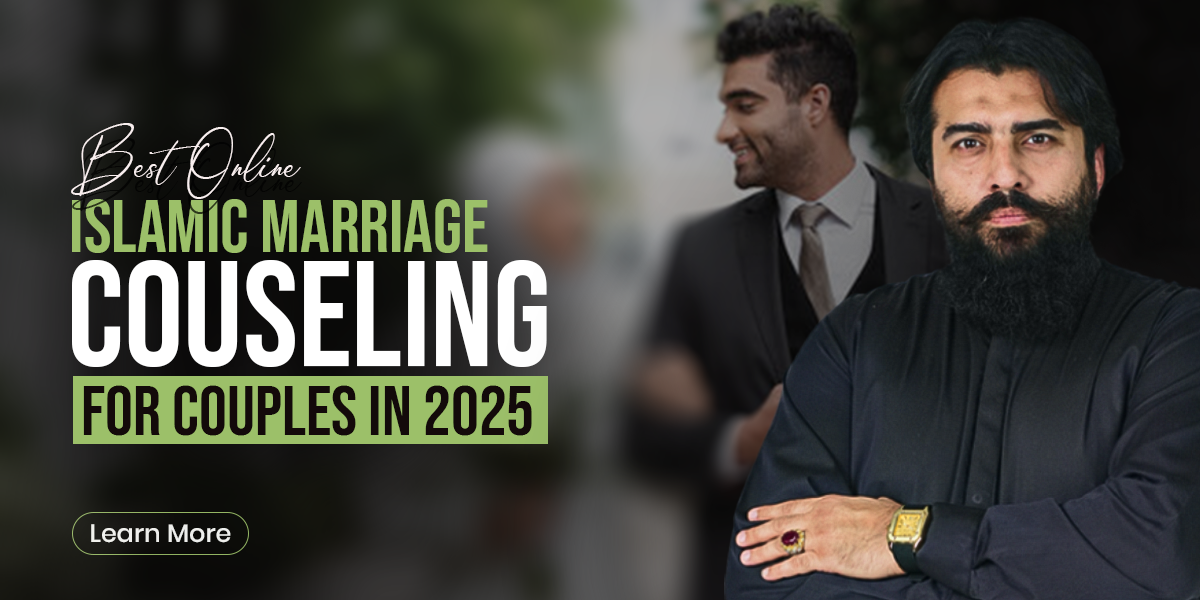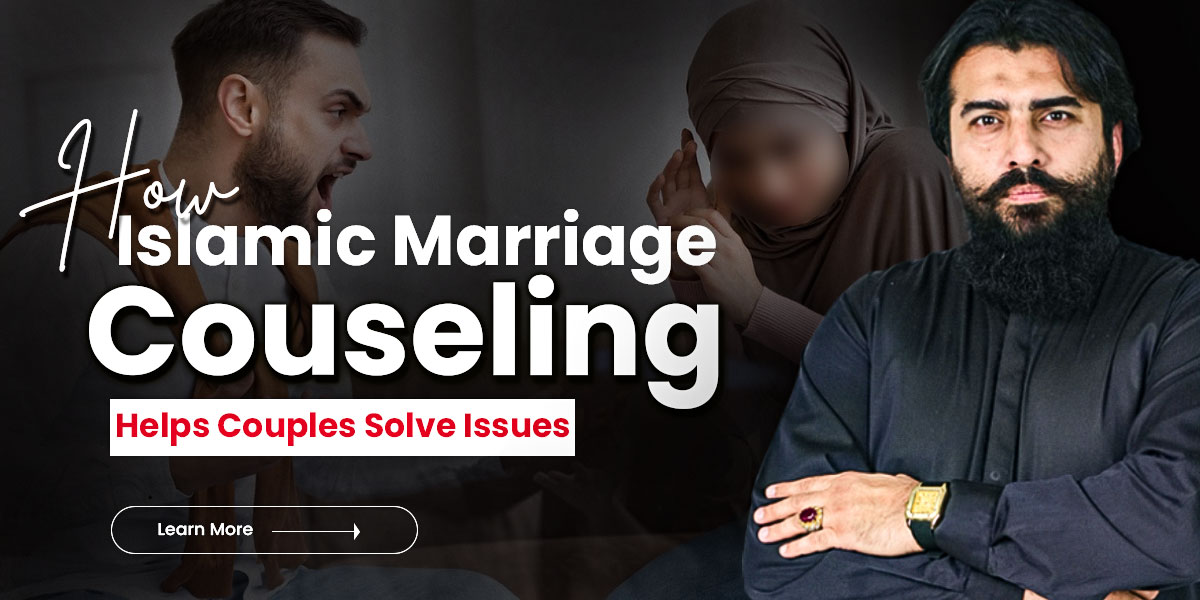The Foundation of Marital Harmony in Islam
“An improved communication has been reported in 65 percent of Muslim couples after faith-based counselling.” This striking figure highlights the noticeable impact of integrating spiritual insight into marital support. In Islam, marriage is described as a “sacred contract” (mithaqan ghalizah) in Surah An-Nisa: 21:
“And how could you take it while you have gone into each other and they have taken from you a solemn covenant?” (Qur’an 4:21)
This verse emphasizes the seriousness and sanctity of the marital bond. In 2025, many couples seek a solution rooted in Islamic marital counseling that honors both Sunnah and modern psychology. This article explores the tools, benefits, and resources of Islamic marriage counseling, from core principles to practical courses.
What you’ll learn:
- How Islamic marriage counselling encourages faith and therapy
- Key principles like taqwa (God-consciousness) and sabr (patience)
- Address common issues & the step-by-step counselling process.
- Islamic marriage counselling courses to deepen your understanding.
What Is Islamic Marriage Counselling?
Islamic marriage counselling is the practice of combining Qur’anic guidance, Prophetic teachings, and professional therapy techniques to support couples. This faith-based model places Islamic values at its core:
- Taqwa (God-Consciousness)
Encourages couples to maintain awareness of Allah’s presence in their relationship decisions. - Sabr (Patience and Perseverance)
Cultivates resilience during conflicts and reminds spouses that trials can strengthen their bond. - Mutual Accountability
Draws on the Prophet’s example of mercy and consultation (shura) to foster open communication and mutual respect.
This approach contrasts with conventional therapy by weaving in daily duʿāʾ (supplication), Qur’anic reflection exercises, and Sunnah-based communication models. Practitioners like those at Shaykh Atif Ahmad’s counselling service offer structured programs that honor Islamic etiquette while using evidence-based counselling tools. Couples learn to resolve disputes through empathy, faith-driven values, and professional techniques.
Core Principles of Islamic Marital Counseling
Effective Islamic marital counseling frameworks rest on foundational values drawn from the Qur’an and Sunnah. Three guiding principles shape the path to a stronger, faith-centered marriage:
1. Tawhid: Unity with Allah’s Purpose
At the heart of marriage in Islam is Tawhid—recognizing the oneness of Allah and aligning your relationship with His divine wisdom. Surah Ar-Rum (30:21) reminds us:
“And of His signs is that He created for you mates from among yourselves, that you may dwell in tranquility with them…”
Counselors help couples articulate shared spiritual goals by practicing worship together, supporting each other’s faith, and raising righteous children. This focus on divine purpose transforms everyday routines into acts of worship.
2. Shura: Mutual Consultation
The practice of Shura, or consultative decision-making, guides healthy dialogue. Drawing on the Prophet Muhammad’s example, counselors introduce tools such as:
- “Speak and Listen” Exercises: Each spouse takes two minutes to share concerns while the other listens without interruption.
- Weekly Check-In Rituals: A structured 15-minute session to review family life, plan financial decisions, and address challenges.
These Sunnah-based methods foster respect and ensure both partners feel heard, reducing resentment and misunderstandings.
3. Rahma: Mercy in Action
Rahma, or mercy, softens the hardest conflicts. In one case study, a couple struggling with trust issues applied a “zakat-style honesty” exercise:
- They committed to a daily transparency journal, sharing one worry and one blessing each night.
- Over four weeks, this simple ritual rebuilt trust, as both partners witnessed consistent honesty and compassion.
Spouses learn to forgive and support one another, echoing the Prophet’s merciful conduct by embedding mercy into daily interactions.
Benefits of Islamic Marriage Counselling
Choosing Islamic marriage counselling brings unique advantages to address both spiritual and practical dimensions of marital life:
Culturally Appropriate Strategies
Counselors understand the nuances of diaspora and interfaith families, offering guidance that respects Islamic values while navigating Western cultural contexts. This tailored support helps couples honor both their heritage and modern demands without conflict.
Practical Faith-Based Tools
Counseling programs often include:
- Dua Journals: Daily prompts to record prayers for each other to foster spiritual connection.
- Prophetic Communication Models: Role-plays based on Hadith teachings, such as using a gentle tone and kind words as advised in Sahih Bukhari.
These resources give couples actionable strategies to maintain harmony long after sessions end.
Online Accessibility for Global Muslims
Couples worldwide can benefit from expert guidance with many services available via video conferencing. This flexibility plays a vital role for busy professionals, families in remote areas, or those with mobility challenges.
“80% of couples report renewed mawaddah (affection) within 12 weeks” of beginning faith-based counseling programs, underscoring its transformative impact.
Visit Shaykh Atif Ahmad’s comprehensive marriage counseling services for more information on structured Islamic marital counseling frameworks.
How Islamic Marriage Counselling Works
Islamic marriage counselling follows a structured, faith-centered methodology designed to guide couples from assessment through lasting growth. An infographic illustrating these steps can help visualise the journey.
Step 1: Assessment
- Couples complete a faith-compatibility quiz to evaluate spiritual practices, communication styles, and shared goals.
- The counsellor reviews responses alongside intake interviews to identify strengths and areas for growth.
Step 2: Action Plan
- Guided Quranic reflection on Surah Ar-Rum (30:21) helps spouses reconnect with the verse’s message of tranquillity and mutual support.
- Sunnah-based exercises such as daily gratitude sharing and “Speak and Listen” sessions are assigned to build empathy and effective dialogue.
Step 3: Maintenance
- For ongoing encouragement and accountability, participants can join a private Ummah support group.
- Access to blog resources including articles on faith-driven conflict resolution and seasonal dua prompts to reinforces progress. (See more at Shaykh Atif Ahmad’s blog.)
Common Issues Addressed
- Communication Gaps
Many couples struggle to express their needs calmly. Counsellors teach Qawl al-Layyin (gentle speech) techniques drawn from Prophetic examples to replace harsh words with compassionate dialogue. - Intimacy and Rights (Hurma)
Misunderstandings around spousal rights can erode closeness. Educational sessions on hurma (the sanctity of marital intimacy) clarify mutual expectations and foster a healthy, respectful relationship. - Parenting Challenges
Raising children in a faith-focused home requires balance. Counselling incorporates tarbiyah frameworks from Islamic tradition, such as empathy-driven correction and role modeling, to guide parents in nurturing their children’s character.
Visit Shaykh Atif Ahmad’s case studies page for detailed case studies on these interventions in action.
Islamic Marriage Counselling Courses
Couples looking to deepen their relationship can enroll in a structured Islamic marriage counselling course that combines scholarly insight with practical skills.
- Duration: Six weeks of guided learning, one module per week
- Curriculum Highlights:
- Fiqh of marriage and family rights
- Emotional literacy rooted in Prophetic examples
- Conflict management using Qur’anic reflection exercises
- Features:
- Live Q&A sessions with qualified counsellors
- Downloadable Sunnah-based worksheets and dua prompts
- Peer-support forum for sharing experiences
These course benefits include strengthened communication patterns and a shared spiritual framework for resolving differences.
👉 Enroll in the Islamic Marriage Counselling Course
8. FAQs
What is Islamic marriage counselling?
Islamic marriage counselling blends Qur’anic guidance, Sunnah practices, and professional therapy techniques to help couples improve communication, resolve conflicts, and deepen their spiritual bond.
How does an Islamic marriage counselling course work?
Typically a six-week program, the course delivers weekly modules on marriage fiqh, emotional literacy, and conflict management, supplemented by live Q&A sessions and downloadable Sunnah-based exercises.
Is seeking marriage counselling permissible in Islam?
Yes, consulting for personal matters is supported by Hadith (Sahih Bukhari 2693). Faith-based counselling aligns with Prophetic traditions of advice and mutual support.
Can I attend sessions online?
Absolutely. Over 90% of spouses participate via secure video calls, making faith-centered counselling accessible to couples worldwide without travel.
How soon can we expect to see improvement?
Most couples report better communication and renewed affection (mawaddah) within eight to twelve weeks of consistent participation in the programme.
What issues can Islamic marriage counselling address?
Common challenges include communication gaps, intimacy questions (hurma), financial disagreements, and parenting struggles, all tackled through faith-rooted tools and professional techniques.
Are these counselling methods culturally appropriate for non-Arab Muslims?
Yes. Counselors adapt practices—like dua-journals and gentle speech (qawl al-layyin)—to respect diverse cultural backgrounds while upholding core Islamic values.
Do I need any materials before starting the course?
You’ll receive all necessary PDFs, dua prompts, and reflection worksheets upon enrollment. A notebook for journaling and a copy of the Qur’an are recommended.
What qualifications do counsellors hold?
Faith-based counsellors typically possess ijāzah in Qur’anic and Hadith sciences, plus professional accreditation in marriage and family therapy.
Can one spouse attend alone?
Yes. Many solo participants engage in personal coaching sessions before inviting their partner to joint counselling.
Is counselling covered by health insurance?
Standard health plans usually don’t cover faith-based programmes. However, some employers offer mental health stipends that may apply—check your benefits guide.
How do I sign up for the Islamic marriage counselling course?
Visit Shaykh Atif Ahmad’s Marriage Counselling page to review course details and complete the online registration form.
Are refunds or trial sessions available?
Many providers offer a complimentary introductory session and a limited refund window if the programme isn’t the right fit. Confirm details before enrolling.
What ongoing support is provided after the course?
Graduates join a private Ummah support group and gain lifetime access to blog resources and refresher webinars on advanced topics.
👉 Learn more about the course details
Conclusion: Reignite Your Marital Spark
Islamic marriage counselling merges timeless wisdom from the Qur’an and Sunnah with modern therapeutic tools, offering couples a balanced approach to strengthen their bond. By focusing on shared faith, compassionate communication, and practical exercises, you can renew your relationship and build lifelong harmony.
Ready to take the next step? Book a free consultation today and begin your journey toward a more loving, resilient marriage.
